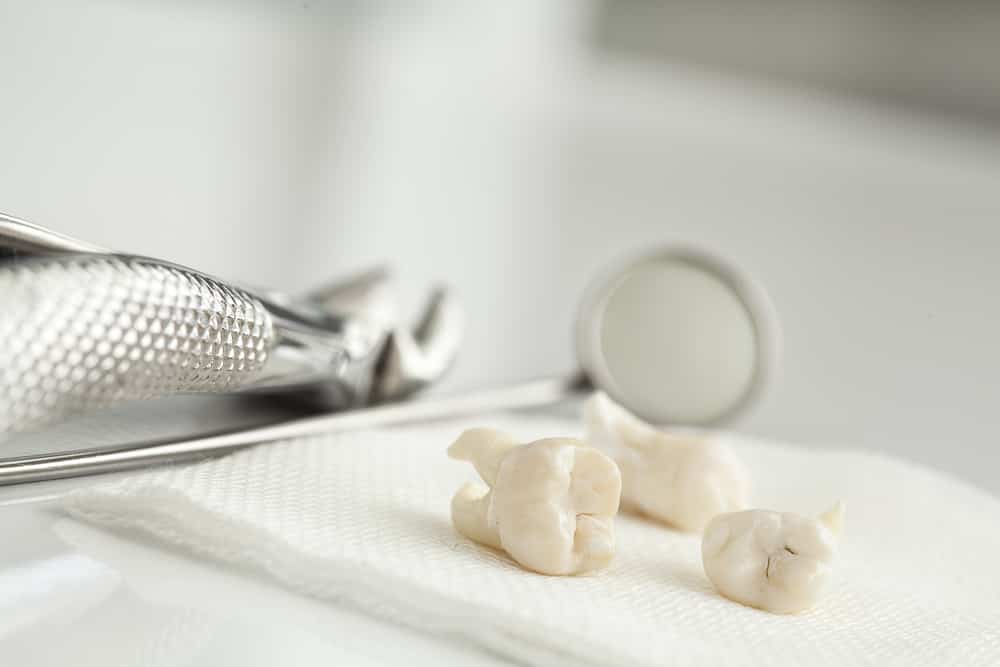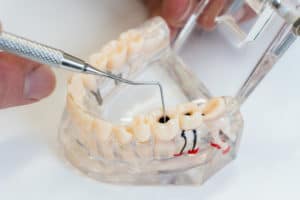When faced with the decision between a root canal and tooth extraction, it is important to consider the risks and benefits of each procedure.
This article will provide an overview of the advantages and disadvantages of both root canals and tooth extractions, as well as factors to consider before making a decision in order to make an informed choice that best serves the patient’s dental health.
Comparing Root Canal and Tooth Extraction
When it comes to dental health, it is important to understand the differences between root canal and tooth extraction in order to make an informed decision.
Root canals are a common treatment option for decayed teeth that have an infected pulp. This procedure involves the removal of the infected pulp and the repair of the natural tooth. Root Canal Treatment can help to save a decayed tooth and preserve the patient’s natural teeth.
On the other hand, tooth extraction is the complete removal of a tooth from its socket. This is usually recommended when the tooth is too decayed or damaged and cannot be saved with a root canal. Tooth extraction may result in the need for a dental implant to restore the patient’s smile and function.
Ultimately, both root canal and tooth extraction are viable treatment options and it is important to discuss these options with your dentist in order to make the best decision for your dental health.
Advantages of Root Canal Treatment
One of the key advantages of root canal treatment is that it helps to preserve the natural tooth. This dental procedure can save a tooth that is infected or has an exposed pulp chamber, which would otherwise require extraction.
Root canal treatments have many benefits when compared to a replacement tooth such as:
- Repair molar teeth – Root canal treatments can repair molar teeth that are irreplaceable, making it a more logical choice over extraction.
- Reduces pain – Counter pain relievers are often used to reduce the pain associated with endodontic treatment, as opposed to a replacement tooth.
- Preserves tooth – Root canal treatments can help to preserve the tooth structure, while a replacement tooth can look artificial and may require an additional procedure such as a dental crown.
- Adds protection – A temporary filling is often placed during a root canal treatment to protect the tooth from further damage, whereas a replacement tooth does not offer the same protection.
Disadvantages of Root Canal Treatment
Despite its advantages, root canal treatment is not without its drawbacks. One potential issue is the risk of infection from wisdom teeth. As the innermost layer of the tooth is being removed, the risk of bacteria entering the blood vessels is increased.
Additionally, patients with certain medical conditions may be less likely to experience successful outcomes. Dental anxiety is another con of the procedure, as the entire tooth must be removed, and the adjacent teeth may be affected as well.
Moreover, if the root canal procedure is not done properly, a patient may experience severe pain and the need for further treatment. While root canals can be an effective way to save a decaying tooth, it is important to consider the potential risks before making a decision.
Advantages of Tooth Extraction
A major advantage of tooth extraction is that it eliminates the risk of infection from wisdom teeth.
Additionally, tooth extraction can help improve oral health by removing dead tissue, which can cause gum inflammation.
By removing the dead tissue, the patient’s blood sugar level can be better regulated, leading to a decrease in the risk of developing diabetes.
Furthermore, when an inflamed pulp is present, tooth extraction can help alleviate the pain as it removes the source of the inflammation.
Lastly, tooth extraction can be done as either a surgical or a dental procedure and, depending on the type of extraction, an ice pack can be applied for pain relief.
With tooth extraction, a dental prosthetic like an implant or bridge can then be put in place to restore the patient’s smile.
Disadvantages of Tooth Extraction
Although rare, tooth extraction carries the risk of complications, such as infection, swelling, and nerve damage. It is also possible to experience mouth numbness and infected tooth extraction.
When a patient considers a root canal vs extraction for their dental health, they should be aware of the potential disadvantages of root canal, such as fear of root canal, periodontal disease, and gum disease. Root canal specialists may also be unable to access the full extent of the canal fillings, leading to canal over extraction. This can have a negative impact on the patient’s bone density and bone structure.
Lastly, there are degrees of anxiety associated with a root canal, which can be counteracted with antibacterial solutions and beneficial solutions. Following the root canal, it is best to avoid hot or cool foods and crunchy foods to help promote family health. It is also important to consider family responsibilities that may have to be put on hold for the procedure.
Last but not least, the type of filling used can make a difference in the outcome.
Factors to Consider Before Making a Decision
Weighing the pros and cons of root canal and tooth extraction is essential before making a decision about dental health. The potential for future infections, the possibility of Endodontic Retreatment, and the patient’s procedure preference should all be taken into consideration.
Soft tissue and the patient’s bad experience with past procedures should also be addressed. An oral surgeon should be consulted regarding the possible replacement of the extracted tooth with an artificial one, as well as the long-term effects of the removal of tooth tissue on the adult teeth and the overall appearance of the teeth.
Key Takeaways
In conclusion, when deciding between root canal treatment and tooth extraction, it is important to consider the advantages and disadvantages of both.
The advantages of root canal treatment are that the tooth can be saved and discomfort is minimized. However, there is a risk of failure, and it can be more expensive than extraction.
The advantages of tooth extraction include lower cost and complete removal of the infected tooth. On the other hand, it can cause pain, and the patient may need to have a replacement tooth.
Ultimately, the decision should be made based on the individual’s preferences and medical needs.
Aspendale Gardens Dental Care is a leading provider of dental services in Aspendale Gardens, VIC. With experienced professionals, the latest technology, and a commitment to patient satisfaction, we are an ideal choice for either root canal treatment or tooth extraction. If you are considering a dental procedure, do not hesitate to contact Aspendale Gardens Dental to learn more about your options.











